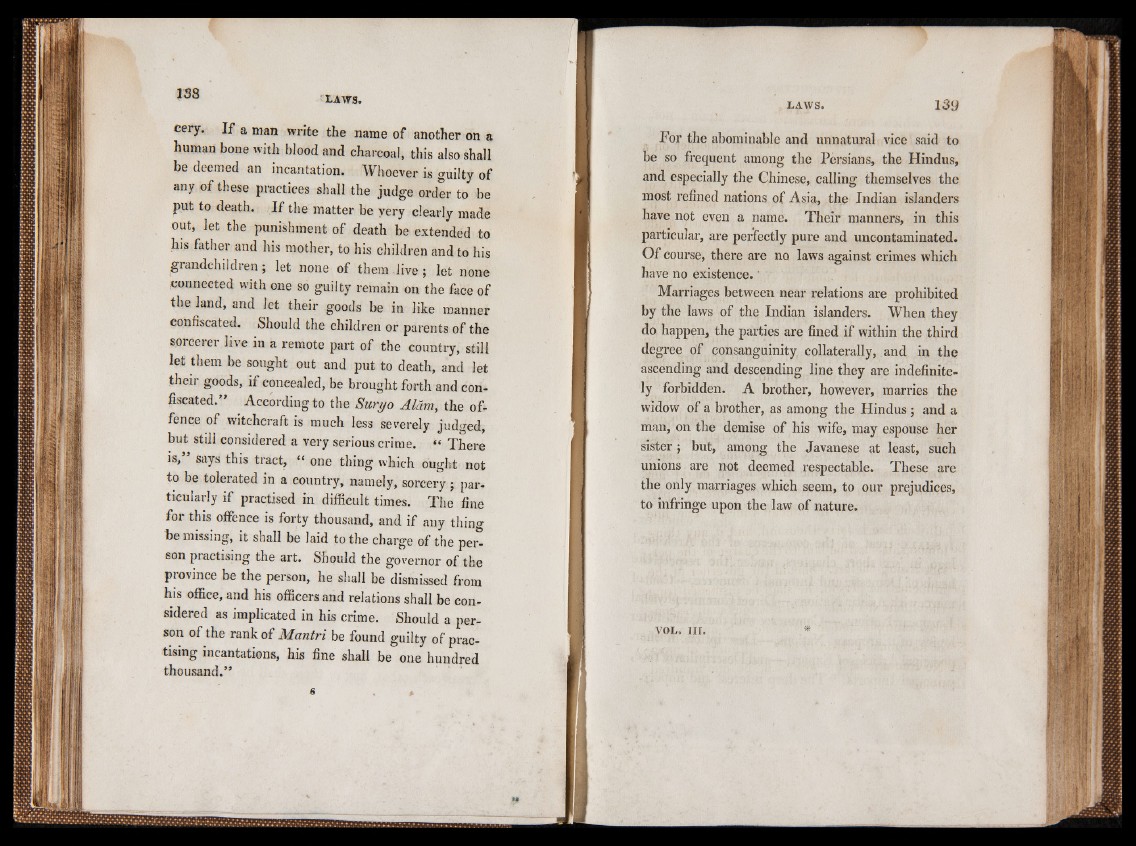
eery. If a man write the name of another on a
human bone with blood and charcoal, this also shall
be deemed an incantation. Whoever is guilty of
any of these practices shall the judge order to be
put to death. If the matter be very clearly made
out, let the punishment of death be extended to
his father and his mother, to his children and to his
grandchildren; let none of them live; let none
connected with one so guilty remain on the face of
the land, and Jet their goods be in like manner
confiscated. Should the children or parents of the
sorcerer live in a remote part of the country, still
let them be sought out and put to death, and let
their goods, if concealed, be brought forth and confiscated.”
According to the Suryo Alam, the offence
of witchcraft is much less severely judged,
but still considered a very serious crime. “ There
is,” says this tract, “ one thing which ought not
to be tolerated in a country, namely, sorcery ; particularly
if practised in difficult times. The fine
for this offence is forty thousand, and if any thing
be missing, it shall be laid to the charge of the person
practising the art. Should the governor of the
province be the person, he shall be dismissed from
his office, and his officers and relations shall be considered
as implicated in his crime. Should a person
of the rank of Mcintri be found guilty of practising
incantations, his fine shall be one hundred
thousand.”
s . *
For the abominable and unnatural vice said to
be so frequent among the Persians, the Hindus,
and especially the Chinese, calling themselves the
most refined nations of Asia, the Indian islanders
have not even a name. Their manners, in this
particular, are perfectly pure and uncontaminated.
Of course, there are no laws against crimes which
have no existence.'
Marriages between near relations are prohibited
by the laws of the Indian islanders. When they
do happen, the parties are fined if within the third
degree of consanguinity collaterally, and in the
ascending and descending line they are indefinitely
forbidden. A brother, however, marries the
widow of a brother, as among the Hindus; and a
man, on the demise of his wife, may espouse her
sister; but, among the Javanese at least, such
unions are not deemed respectable. These are
the only marriages which seem, to our prejudices,
to infringe upon the law of nature.